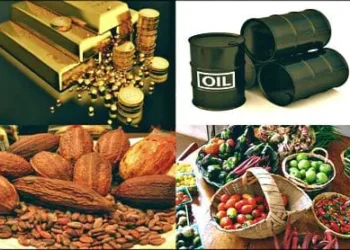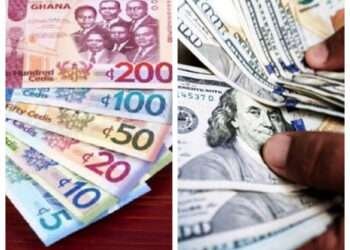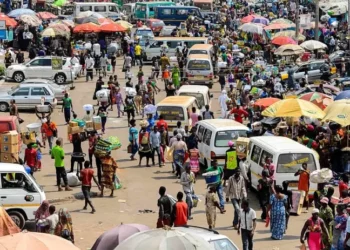Ghana’s year-on-year inflation for August 2025 has fallen to 11.5%, down from 12.1% in July 2025, according to the latest figures released by the Ghana Statistical Service (GSS).
This development marks the lowest inflation rate in four years and the eighth consecutive month of decline in 2025. Significantly, the figure has beaten the government’s end-year inflation target of 11.9%, signaling a potential turning point for Ghana’s economic recovery.
Government Statistician, Dr. Alhassan Iddrisu, emphasized that the consistent decline in inflation highlights easing pressures on the economy.
“This trend is a reflection of stability returning to the market and offers households a sense of relief after months of rising living costs.”
Dr. Alhassan Iddrisu
Food Prices Lead the Slowdown
One of the biggest drivers behind the inflation decline was the drop in the prices of food items, which recorded a rate of 14.8% in August, down from 15.1% in July.
Although food inflation remains relatively high compared to non-food inflation, the downward movement has been crucial in easing household expenditure.
On the other hand, non-food inflation fell to 8.7% in August, down from 9.5% in July. The combined slowdown reflects a balance in both food and non-food categories, pointing to a broad-based decline across the consumer price index.
Locally Produced vs. Imported Goods
The breakdown also shows a notable decline in inflation for both locally produced and imported goods. Locally produced items dropped from 12.9% in July to 12.2% in August, while imported goods inflation fell from 10.0% to 9.5%.
For many market observers, this signals that Ghana is benefiting not only from internal market stability but also from a stronger supply chain position internationally. This trend could support long-term disinflation, particularly if global commodity prices remain stable.
The regional analysis revealed striking disparities in inflation rates across Ghana. The Upper West Region recorded the highest inflation at 21.8%, down from 24.8% in July. Despite the drop, the figure remains almost double the national average, highlighting persistent structural challenges in the region.
Conversely, the Bono Region reported the lowest inflation in the country at just 6.1%, offering a stark contrast to the Upper West. These sharp differences underline the uneven distribution of price pressures across the nation.
Month-on-Month Relief for Households
Beyond year-on-year comparisons, the month-on-month numbers also provided welcome relief. Between July and August 2025, the general price level fell by 1.3%, easing the immediate burden on households. For consumers, this translates into more affordable goods and services, especially in essential categories like food and transportation.
“This month-on-month dip is not just a statistical victory but a practical win for families who have been struggling to stretch their incomes.”
Dr. Alhassan Iddrisu
What This Means for Ghana’s Economy
The inflation decline is a positive development for policymakers, businesses, and households alike. By beating its own end-year target ahead of time, the government now has room to strengthen other aspects of the economy, including fiscal consolidation, debt management, and support for SMEs.
Economic analysts suggest that if this trend continues, it could open the door for the Bank of Ghana to consider further monetary easing. Such a move could boost lending to businesses and spur growth in sectors like manufacturing, agriculture, and services.
However, experts also caution that global uncertainties—such as fluctuating oil prices and external debt obligations—could still pose risks to Ghana’s inflation trajectory.
As Ghana moves into the final quarter of 2025, the latest inflation data strengthens hopes for a more stable economic environment. Lower inflation means more predictable costs for businesses and greater purchasing power for consumers.
For now, the focus will be on whether the government can sustain this momentum, especially as the country gears up for the next fiscal year. If stability holds, Ghana could be on track to record one of its strongest inflation management performances in recent history.
READ ALSO: Sam George to MultiChoice: Reduce Subscription Fees by Sept 6 or Shutdown























